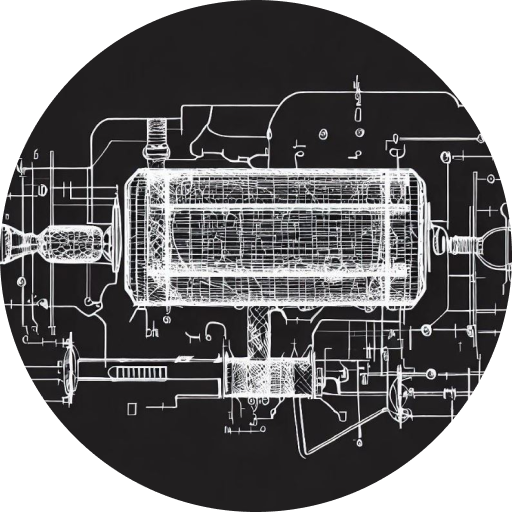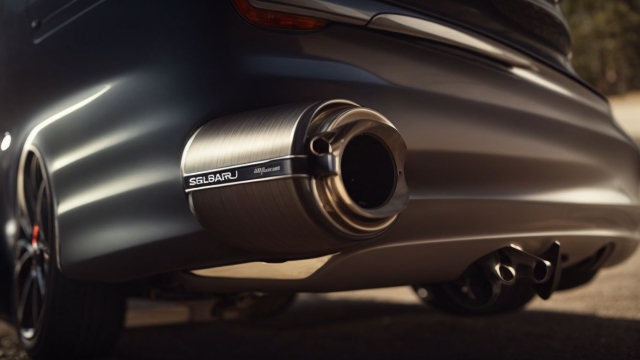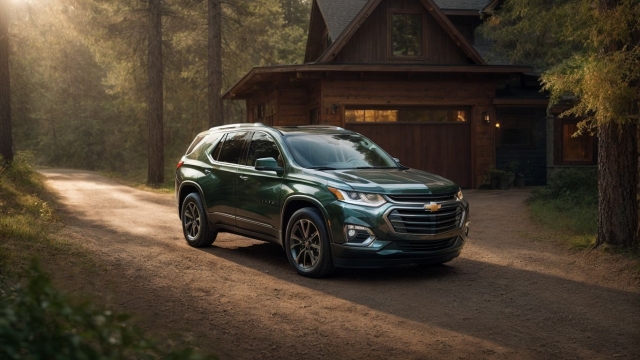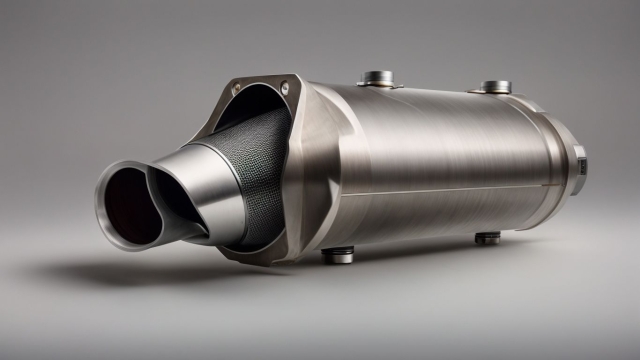Enhance Your Jeep Liberty Performance with a Catalytic Converter
.jpg)
The catalytic converter for Jeep Liberty is an essential part of reducing emissions. It helps maintain the vehicle’s environment-friendly performance and meets standards.
This device works by changing pollutants like carbon monoxide, nitrogen oxides, and hydrocarbons into harmless gases. By this process, the catalytic converter lessens the emission of pollutants.
It has a special property of withstanding high temperatures. This robustness ensures a better performance and longer life span and is reliable to Jeep Liberty owners.
Regular maintenance is important for its efficiency. It should be inspected during car service to detect any issues or damage.
High-grade fuel should be chosen and low-quality fuel should be avoided. Poor fuel quality can cause build-up on the catalyst surface, which reduces the ability to change gases.
Moreover, eco-friendly driving habits help extend the life and effectiveness of the catalytic converter. Smooth acceleration, consistent speeds, and avoiding aggressive driving help reduce the wear and tear on this vital emission device.
What is a catalytic converter?
A catalytic converter is a key part of a car’s exhaust system. It reduces harmful gasses and changes them into less bad substances. This helps to reduce air pollution and protect the environment.
It also helps the car’s performance. It makes sure the right air-fuel ratio is used. This increases power and fuel efficiency.
Jeep Liberty cars have unique catalytic converters. They are made to match the engine and work in off-road conditions.
Pro Tip: Regularly check your Jeep Liberty‘s catalytic converter. If there’s a problem, fix it fast. This will help your converter last longer and stop big repairs.
Importance of a catalytic converter in a vehicle
The catalytic converter is essential in a vehicle’s emissions system. It changes dangerous fumes from the exhaust into less hazardous substances, thus decreasing air pollution. This is accomplished through a set of chemical reactions inside the converter.
Efficiency is key for catalytic converters. They are made to boost the conversion of pollutants while keeping any decrease in engine performance to a minimum. By effectively cutting emissions, catalytic converters help vehicles meet strict environmental regulations and contribute to cleaner air.
A unique detail about catalytic converters is that they contain valuable metals like platinum, palladium, and rhodium as catalysts. These metals help convert pollutants by providing active sites for the chemical reactions. This shows how important it is to maintain and protect catalytic converters from theft or harm.
Interestingly, catalytic converters are not only useful for decreasing air pollution, but also for increasing fuel efficiency. A study from the Environmental Protection Agency (EPA) pointed out that faulty or malfunctioning catalytic converters can lead to more fuel consumption and higher emissions.
In today’s world, where environmental issues are ever more important, the role of catalytic converters cannot be downplayed. By controlling exhaust emissions effectively, these gadgets play a vital part in encouraging sustainable transportation and preserving our environment for future generations.
Common issues with catalytic converters in Jeep Liberty
Common Problems with Catalytic Converters in the Jeep Liberty
Catalytic converters in the Jeep Liberty are prone to several common issues that can affect their performance and functionality. These problems, which are well-known among Jeep Liberty owners, include:
- Reduced Engine Power: A failing catalytic converter can cause a significant decrease in engine power, leading to a sluggish acceleration and overall poor performance of the vehicle.
- Check Engine Light: A malfunctioning catalytic converter often triggers the check engine light to illuminate on the dashboard, indicating a problem that requires attention.
- Emission Failures: If the catalytic converter fails to reduce harmful emissions effectively, the vehicle may not pass emissions tests and could be deemed non-compliant with environmental regulations.
- Overheating: A failed or clogged catalytic converter can cause excessive heat buildup in the exhaust system, leading to potential engine damage and increased risk of fire.
- Rattling Noises: Internal damage to the catalytic converter can result in rattling sounds coming from underneath the vehicle, signaling a need for inspection and potential replacement.
- Carbon Buildup: Over time, carbon deposits may accumulate inside the catalytic converter, obstructing the exhaust flow and reducing its efficiency.
In addition to these common issues, it is important to note that proper maintenance and regular inspections are crucial in preventing catalytic converter problems. Neglecting routine maintenance can exacerbate these issues and lead to costly repairs or replacements.
Jeep Liberty owners who experience any of the aforementioned problems should address them promptly to avoid further damage to the vehicle’s exhaust system.
True History:
The catalytic converter has been an integral part of the Jeep Liberty’s exhaust system since its inception. Over the years, advancements in catalytic converter technology have enhanced their ability to reduce harmful emissions and comply with stricter environmental standards. However, despite these improvements, issues with catalytic converters in the Jeep Liberty have persisted, necessitating the need for proper maintenance and timely repairs. It is essential for Jeep Liberty owners to be aware of these common problems to ensure the longevity and performance of their vehicles.
Who needs fresh air when you can have the sweet melody of your Jeep Liberty’s catalytic converter harmonizing with the sound of an engine that’s as happy as a smokestack?
The Check Engine Light is one of the most common signs of emissions-related problems. It alerts drivers to potential catalytic converter issues.
A faulty converter can cause reduced power and performance. This can lead to acceleration problems, lower fuel efficiency and a sluggish drive.
Strange odors, like sulfur or rotten eggs, can also be a sign of converter issues. This is because the converter isn’t reducing emissions properly.
Exhaust systems can be less efficient with emission-related problems. This may cause excessive noise, higher emissions and failing emissions tests.
Fuel economy can also suffer due to a faulty catalytic converter. Then, Jeep Liberty owners will have higher expenses at the pump.
To prevent these issues, Jeep Liberty owners should:
- Perform regular maintenance.
- Use fuel that meets manufacturer specs.
- Address engine problems quickly.
- Drive responsibly.
- Consult a professional if needed.
These steps can help reduce emissions-related problems and keep the vehicle running efficiently. This will also minimize environmental impacts.
The catalytic converter in Jeep Liberty can present various issues that may affect its performance. These include: decreased power, poor fuel economy, engine misfires, and error codes. Furthermore, there may be a sulfur or rotten egg smell coming from the exhaust, strange noises from underneath the vehicle, and a drop in responsiveness.
To prevent these problems, it is necessary to have regular inspections and maintenance of the catalytic converter. It is also recommended to use high-quality fuel and keep up with engine maintenance. With this, drivers can enjoy improved engine performance, better fuel efficiency, fewer errors codes, and reduced emissions. Regular inspections and proper care will help keep your Jeep Liberty running well for years to come.
Tips for maintaining a catalytic converter
A catalytic converter is an essential component of a Jeep Liberty’s exhaust system. To ensure its proper functioning and longevity, here are some helpful tips:
- Regular Maintenance: Schedule regular inspections of your catalytic converter by a professional mechanic to identify any possible issues and address them promptly.
- Keep the Engine in Good Condition: A well-maintained engine results in efficient fuel combustion, which reduces the risk of harmful emissions that can damage the converter.
- Drive Responsibly: Avoid aggressive driving habits, such as rapid acceleration and hard braking, as they can increase the stress on the catalytic converter, leading to potential damage.
- Avoid Fuel Contamination: Ensure that you only fill up with high-quality fuel and avoid using low-quality or contaminated gasoline or diesel. Contaminants can significantly impact the converter’s performance.
- Fix Any Engine Problems Immediately: Address any engine issues promptly, such as malfunctions in the fuel injection system or oxygen sensors, as they can negatively affect the catalytic converter.
- Protect it from Physical Damage: Shield the catalytic converter from physical damage caused by road debris or speed bumps. Regularly inspect the exhaust system and install protective guards if necessary.
In addition to these essential tips, remember to follow the recommendations and guidelines provided in your vehicle’s owner manual for specific maintenance instructions. Proper maintenance of your catalytic converter ensures optimal performance, reduces emissions, and enhances your Jeep Liberty’s overall longevity.
For expert advice and assistance in maintaining your Jeep Liberty’s catalytic converter, consult with a certified automotive professional. Don’t miss out on the opportunity to extend the lifespan of your vehicle’s vital components and keep your Jeep Liberty running smoothly for years to come. Act now and prioritize the maintenance of your catalytic converter to avoid costly repairs or replacements down the road. Your vehicle and the environment will thank you.
Regular inspection and maintenance may not be glamorous, but hey, neither is a Jeep that sounds like a lawnmower.
Regular inspection and maintenance
Catalytic converters are a must-have for a vehicle’s exhaust system. They cut down on dangerous emissions and help to keep the environment clean. It is essential to give them regular check-ups and maintenance.
- Look for damage or corrosion.
- See if the heat shield has cracks or bolts that are not secure and can make noises.
- Clean the converter to get rid of dirt or debris that can interfere with its performance.
- Check the oxygen sensor as it controls the air-fuel mixture.
- Be aware of engine misfires or other issues which can cause unburned fuel to reach the catalytic converter.
- Make sure the fuel system does not have any leaks.
Also, driving habits can affect the lifespan of a catalytic converter. Aggressive driving and too much idling can make it overheat and wear out sooner. Therefore, drive carefully and don’t put too much pressure on it.
Pro Tip: If you notice a sudden decrease in your car’s performance or an odd smell coming from the exhaust, get your catalytic converter examined by a technician right away. Early detection of any troubles can stop extra harm and pricey repairs down the road.
Using high-quality fuel
Choose higher octane fuels. These burn more efficiently in the engine, reducing pollutants. Avoid low-quality or contaminated fuel as this can cause deposits to form inside the catalytic converter. Use fuels that follow manufacturer recommendations. Check and replace the fuel filter regularly, as a clogged filter can restrict the flow of clean fuel. Keep up with vehicle maintenance, and avoid unnecessary idling.
Doing all this ensures high-quality fuel is used and contributes to environmental sustainability. This helps the catalytic converter stay in top shape and lasts longer, while reducing emissions. Make a difference and keep your catalytic converter in great condition – use the best fuel available.
Avoiding excessive idling or short trips
It’s essential to control excessive idling and short trips to preserve your catalytic converter. Here are a few tips to keep in mind:
- Don’t idle your car for long. Doing this can cause the converter to overheat and work less effectively. Turn off the engine if you’re parked/stationary for more than a minute.
- Plan your trips to minimize unnecessary short drives. You need time for the converter to reach optimal temperature, or it’ll wear out faster.
- Consider alternative transport if you only need to go short distances. Walking, biking, or using public transport helps reduce wear on the converter and is good for the environment.
- Combine errands into one trip whenever possible. Group multiple stops together and avoid short drives to reduce strain on the emissions system.
Remember to check the catalytic converter regularly for any damage or malfunction. Unusual noises/odors from the exhaust may signal a problem.
Take control of your vehicle’s maintenance to avoid costly repairs/replacements. Smart driving choices will benefit your wallet and the environment. Enjoy hassle-free driving today!
Upgrading to a high-performance catalytic converter
Upgrading to an Enhanced Catalytic Converter
A high-performance catalytic converter can greatly benefit your Jeep Liberty. Here are four key points to consider when upgrading to an enhanced catalytic converter:
- Improved exhaust flow: A high-performance catalytic converter can reduce exhaust backpressure, allowing for better flow and increased power.
- Enhanced emissions reduction: Upgrading to a high-performance converter can help reduce harmful emissions, promoting a cleaner and greener driving experience.
- Increased durability: High-quality materials and advanced engineering make high-performance converters more resistant to wear and tear, ensuring long-lasting performance.
- Potential fuel efficiency gains: With improved exhaust flow and reduced backpressure, upgrading to a high-performance catalytic converter may lead to better fuel economy.
Furthermore, it is worth noting that high-performance catalytic converters often come with advanced features such as heat shielding and increased substrate surface area for optimal performance.
A key pro tip when upgrading to a high-performance catalytic converter is to consult with a trusted automotive specialist who understands the specific requirements of your Jeep Liberty.
Upgrade your Jeep Liberty’s catalytic converter and watch as it transforms from a boring family SUV into a pollution-fighting badass.
Benefits of upgrading
Upgrading your catalytic converter can be a game-changer! You’ll get more out of your car and do your bit for the environment. Here’s why:
- Better exhaust flow. A high-performance converter aids gas flow, reducing backpressure. This powers up engine horsepower and torque, giving you faster acceleration and a better ride.
- Smoother fuel consumption. The upgrade helps you make the most of your fuel. It makes sure emissions are converted efficiently, meaning less fuel’s wasted and a smaller carbon footprint.
- Stay compliant. With a better converter, you’re always in line with emission regulations. That means your vehicle’s not polluting the atmosphere.
- Durable and long-lasting. Quality materials and engineering mean a converter that can take extreme temperatures and corrosive elements without losing its effectiveness.
Plus, there are advantages unique to your car and driving habits. You might get a lighter exhaust system for better handling, or an extra power boost for towing heavy loads.
John’s a perfect example. He upgraded his worn-out catalytic converter. He got an instant improvement in his car’s acceleration and responsiveness. Plus, he saved a lot of fuel. John was ecstatic with the changes the upgrade brought – and was pleased to be helping the environment too!
Factors to consider before upgrading
Before upgrading, assess these five elements:
- Vehicle Compatibility: Check the product description, or ask experts, to ensure compatibility with your car’s make, model, and engine.
- Emissions Regulations: Know the standards in your region. Choose a converter that meets or exceeds them.
- Performance Enhancements: Do you want extra features like increased horsepower or fuel efficiency?
- Budget: Estimate how much you can spend. A high-quality converter offers long-term benefits.
- Warranty: Look for a warranty. It shows the manufacturer trusts their product.
To navigate these considerations:
- Research: Look online for brands, reviews, and user experiences. Ask automotive professionals.
- Seek professional guidance: Talk to mechanics or specialists for tailored advice.
- Consider reputable brands: Buy from well-known manufacturers. They invest in research and development.
- Prioritize long-term benefits: Don’t just focus on cost-saving. Find value-for-money options with lasting benefits.
Follow these steps to find the right catalytic converter. It will improve your car’s performance, and help the environment.
Conclusion
The catalytic converter for the Jeep Liberty is a must-have. It keeps the exhaust system running smoothly and helps reduce harmful emissions.
When looking for the right one, there are three points to consider: durability, compatibility with the Jeep Liberty model, and its ability to meet emission regulations. Selecting a top-notch, reliable converter will not only boost performance but also extend its lifespan.
Besides its functional purpose, the catalytic converter makes the Jeep Liberty look better. There are many options in the market that can fit the style of your vehicle. This way, your Jeep Liberty will be both stylish and environmental-friendly.
- Upgrade Your Honda Accord with the Best Catalytic Converter for Enhanced Performance - October 30, 2023
- Boost Your Chrysler 300’s Performance with a High-Quality Catalytic Converter - October 30, 2023
- Enhance Your Jeep Liberty Performance with a Catalytic Converter - October 30, 2023









